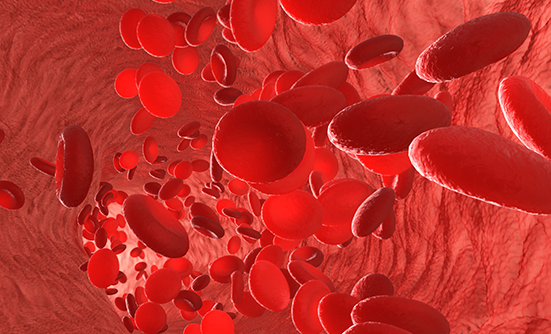The increase in the use of oral chemotherapy since 2000 has dramatically changed how patients with cancer receive chemotherapy. The treatment is shifting from the use of infusion or intravenous (IV) chemotherapy to oral chemotherapy drugs. Nearly 25% of all patients with cancer now take 1 or more oral medications as a part of their cancer care.
ADVANTAGES
The use of oral chemotherapy drugs is expected to more than double in the next several years. Oral drugs offer many advantages to patients, including greater convenience, flexibility, and less disruption of daily activities for patients, their families, and caregivers.
Patients and oncologists often prefer oral chemotherapy drugs over IV therapies, particularly if the oral drug has demonstrated the same benefit and safety. Patients have noted that they prefer oral chemotherapy because it does not require IV access, and it reduces the visits to the infusion center or the hospital.
CHALLENGES
With these advantages, the shift to oral drugs introduces new challenges for oncologists, oncology nurses, and patients. Oral chemotherapies are self-administered by patients or by caregivers at home, and usually mean several doses every day. Because they are administered at home and not in an infusion clinic, oral chemotherapy drugs are seen as less toxic, with fewer side effects, which can result in less frequent monitoring by the provider.
As all patients know, chemotherapy drugs, oral or infusion, are associated with harmful side effects. Moreover, studies have shown that patients underestimate the complications of oral chemotherapy and may fail to report side effects, often because they feel that the oral treatments are milder than IV treatments.
Taking multiple-day regimens and at-home administration of the drug increase the risks for adverse effects, drug interactions, and nonadherence for patients using oral chemotherapy, which can lead to harmful consequences that affect patient safety.
PATIENT ADHERENCE
Patient adherence—the extent to which patients take medications as prescribed by their healthcare providers—to oral chemotherapy drugs is more difficult to assess than adherence to IV chemotherapy. The reasons associated with lack of adherence to oral chemotherapy include:
- Patient-related factors: cognition, support, forgetfulness, depression, and functional difficulties, such as the inability to open drug containers or difficulty swallowing the drug, and a lack of belief in the value of the therapy
- Treatment-related factors: adverse side effects, complexity of treatment, drug interactions, and warnings on the drug label
- Healthcare system factors: lack of physician availability, lack of financial resources or insurance coverage, delays in obtaining or filling a prescription, and delay in follow-up care
Nonadherence also involves patients taking too much of their medication, taking doses too close together, or double-up doses after missing a dose. This can significantly affect patient outcomes. Studies have shown that nonadherence to oral chemotherapy can directly determine the treatment’s success, and poor adherence is linked with higher hospitalization rates, low disease-free survival, and poor treatment outcomes.
THE ONCOLOGY CARE TEAM
The shift to oral drugs takes the control away from the oncologist and places the responsibility on the patient or caregiver to ensure that the patient takes the right drug, in the right amount, and at the right time.
Although this shifts the focus of
care to patients and caregivers, you need to understand you are not alone. The oncology care team and the nurse navigator play an important role in your medication adherence through education and communication. You and your oncology team must share open and honest communication to ensure adherence. The oncology care team, oncology nurse navigators, and you should work together to create a treatment plan that is clear, manageable, and fits into your daily routine.
Always clarify any uncertainty about your treatment, the schedule, side effects, food and drug interactions, and safe handling, and ask any questions if the instructions are not clear.
Patient education and tools to enhance adherence, reduce drug interactions, and reduce adverse events are vital when taking oral cancer therapies and to the success of your treatment. With more patients self-administering chemotherapy outside of the infusion center, the need is greater to develop strategies for assessment, patient education, adverse effects management, and ongoing monitoring of the care of the patient.
TOOLS FOR IMPROVING ADHERENCE
Oncology nurse navigators are the advocates for patients receiving oral chemotherapy drugs. Navigators need to be informed about the new oral chemotherapy drugs, educate patients about these drugs, and develop tools to assist patients with adherence and with adverse effects management to improve patients’ quality of life.
Several methods, tips, and tools can be used in the creation of a treatment to help remind patients to adhere to their oral drugs. Reminders can be as simple as taking the medication at the same time on a daily routine, such as getting ready for bed.
Calendars or schedules can assist patients in taking their medication on the exact days and times, and this is also a way to record side effects or important dosing information, such as a missed or skipped dose.
Pillbox organizers can be an effective way to keep track of medications. You should understand how to properly store your prescribed oral chemotherapy, because some drugs may have strict storage requirements, such as remaining in their original containers, being kept in the refrigerator, or storing them away from moisture.
Setting alarms on a cell phone or a timer, using pocket pillboxes that vibrate, or using watches with reminder alerts or voice alarms can be helpful tools.
Smartphones or tablets offer many apps with features that provide medication reminders. Many of these apps are multifaceted, allowing for the creation of alarms, journaling, researching drug interactions, receiving text messages and automated voice recording reminders, tracking refills, and much more.
MANAGING SIDE EFFECTS
The active management of oral chemotherapy side effects is essential to proper medication adherence. Some patients reduce or stop taking their oral drugs in an effort to avoid side effects. However, many side effects associated with cancer drugs can be easily managed if they are treated early.
You should discuss any side effects right away with your oncology care team so that these can be addressed and managed without reducing or stopping the treatment. Prompt management of side effects will allow you to receive the full benefit of the oral drug and have a better quality of life.
FINANCIAL BURDEN
The cost of oral chemotherapy drugs can be a financial burden, because many drugs are covered as a prescription drug rather than as a medical expense, resulting in high copays or a deductible expense.
To manage the financial burden, patients may be tempted to skip or cut back on their dosing. Nonadherence to the prescribed regimen can have a significant impact on the disease and overall survival.
Many major drug companies and advocacy resources offer patient assistance programs that provide free or low-cost medications to patients who are unable to pay for or who receive financial assistance with copays, deductibles, reimbursement, and insurance premiums. Your oncology nurse navigator can assist you with resources for financial assistance.
PATIENT EDUCATION
The diagnosis of cancer and cancer treatment are complex and overwhelming to patients and their families. With advancements in cancer treatment, more patients have the opportunity to take their medication at home, in the form of oral chemotherapy, molecular, or targeted drugs.
Patients, their families, and caregivers must have proper education on oral chemotherapy drugs. They must be informed about dosing, schedule, side effects, and side effects management. Education is key to promote the proper use of oral cancer drugs. The goal is to ensure that patients understand their treatment and the importance of taking their medications as prescribed to improve their outcomes.
















